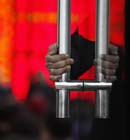Web Exclusive
China to crack down on illegal foreign money
By Nie Peng (chinadaily.com.cn)
Updated: 2010-03-23 12:01
 |
Large Medium Small |
The State Administration of Foreign Exchange (SAFE) will conduct a special investigation in 13 provinces and municipalities during the first half of this year to examine whether international "hot money" was flowing into China under the cover of trade, foreign direct investment (FDI) and foreign debt, the Shanghai Securities Journal reported Tuesday.
China faces an increasing risk of net inflow of foreign exchange in the backdrop of a more complex and volatile international balance-of-payments situation in 2010, SAFE said at its annual meeting on foreign exchange in Beijing on Monday.
There are more uncertainties in cross-border money flows this year, SAFE noted. The investigation will focus on trade in goods and services, individuals, FDI, international payment transactions and cross-border money flows, and will cover major channels, projects and entities through which international speculative money comes into China, the regulator said.
SAFE vowed to punish violators of foreign exchange law and regulations as well as to avoid adverse effects on normal trade and investment activities during the crackdown.
Amid stronger market expectation of a yuan appreciation, the cases of illegal use of foreign exchange have been on the rise in recent months, according to the Shanghai Securities Journal.
Lu Zhengwei, chief economist with Industrial Bank, told the Beijing News that the increasing inflow of foreign exchange was mainly due to potential lucrative returns coveted by international speculative money under current conditions.
| ||||
However, Lu also warned of a possible massive exodus of international money within the year as some institutional investors were already considering withdrawing from emerging markets. Whether massive pullouts would become a reality depends on when the US Federal Reserve raises interest rates, he said.













